Udupi, Feb 4: The foundation stone laying ceremony of the Salihath First Grade College was held on Wednesday at Tonse, Hoode in Udupi district. Maulana Syed Jalaluddin Umari, national president of Jama’ath-e-Islami Hind led the stone laying ceremony.
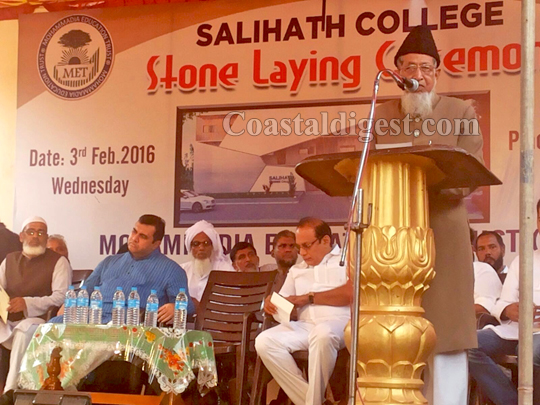
Speaking on the occasion, Umari said that the religion of Islam had made education compulsory for both men and women. Moral education is must to morally uplift the new generation, he added.
Vinay Kumar Sorake, Urban Development Minister, uploaded the contribution of the Trust in the field of education. “If India has to achieve number-1 position in the world in the field of education by 2020 private education institutions like this should play a prominent role,” he said.
The proposed women’s college is an addition to the several institutions run by the Mohammadia Educational Trust in Hoode. The new degree college would start functioning from 2016-17 academic year.
Mohammed Idris, vice-president of the Trust, said that the new three-storied building would be constructed at a cost of Rs. 2 crore and each floor would measure 6,700 square ft. The ground floor would be ready in six months.
The trust had started a nursery school in Hoode in 1980. It started a Kannada medium high school for girls in 1996 and an English medium school in 1998. It also started a pre-university college in 2009.
Already, more than 1,000 students were receiving education in the institutions run by the trust. The intention in starting all these institutions was to provide educational facilities to students in rural areas, he added.
Atharulla Sharif, president of the State-unit of Jama’ath-e-Islami Hind and Pramod Madhwaraj, MLA, Udupi, were present among others.
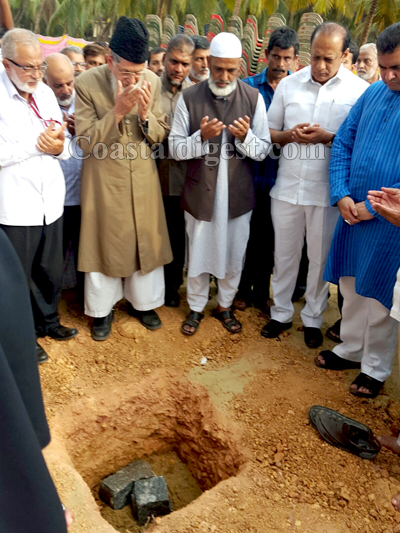
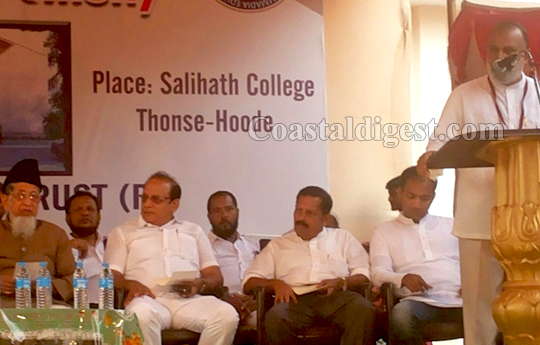
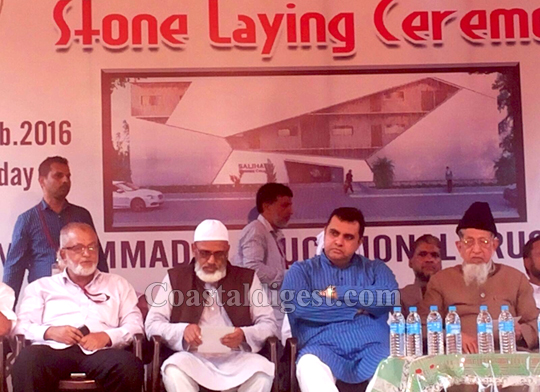

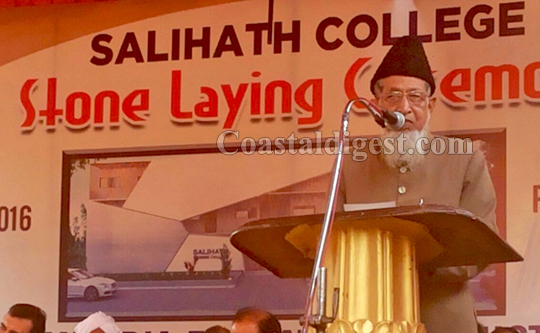
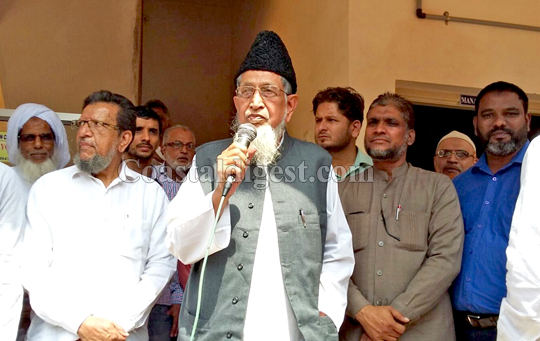





Comments
Why they are worshipping mother godess Earth.
Anyway nice to see this..
Brother Naren, its a Stone laying for college building!
They are not worshiping stone, Snakes, S.Linga etc etc.
\Worship the Creator not his Creations\""
Yes dear naren, Do you have any problem? Look in to yourself dont interfere in others work
Good wishes to Mohammadiya Education Trust.
It is learnt that Salihat is charging exorbident fee for the students in their Primary and Higher secondary Schools. If the trust is serving the community, there should be a fee structure which is lower than the other private schools or colleges. This will help the poor muslim students. Recent days Eductional institutions in Muslim community become commercialed like others that is highly undesirable. In the name of Education to Muslim Girls and boys, the commercialized practice is undesirable.
I urge Salihat college have to be very reasonable in their fee structure and wish they are model to others.
Congratulations Salihat Management.
Salihat Management is doing great job in the field of Education in Hoode, May Allah reward them for their noble initiative.
Are they worshiping stones? (ref pic number 2)
Excellent job. May Allah accept their noble work. It is the basic
necessity for our girls who wants to pursue college education.
They can have their college education in their village no need to go far cities.
Morover Salihath is doing very good in the field of education.. May Allah bless them again. Aameen
excellent work...May Allah accept it
Add new comment